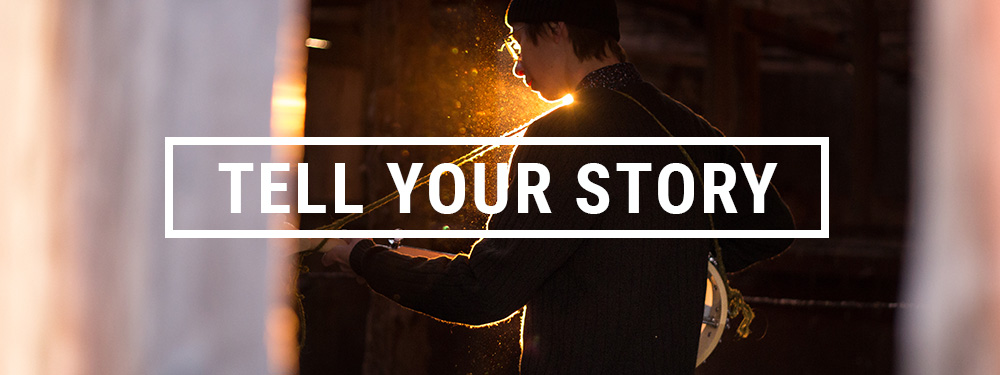We’re serious music fanatics over here at Z Coast and our taste is spread across multiple genres—we’re talking everything from Marian Hill to Jessie Reyez to Eric Church to alt-J to Ed Sheeran. We like music, okay?
Speaking of which, feel free to check out our Spotify playlist and see what we’re listening to this week. Now back to our regularly scheduled writing…
While we appreciate these musical artists for the tunes they produce, the marketer’s in us can’t help but appreciate the brands they have established (and are establishing) for themselves.
All of the musicians we mentioned have something in common: they know what their unique identity is and they express it with authenticity, confidence, and consistency. These three things are what enable anyone, but especially musicians, to connect and engage with other people in a meaningful manner.
Authenticity, confidence, and consistency are also the key to a long-lasting career in the music industry. So we ask you, garage bands and solo artists of America who have yet to break into the industry (we know your time is coming!), are you comfortable in your musician’s skin?
Let that float around in your mind for a minute while we do you a favor. Below is a little advice for how to brand your band (or solo career). We hope you put it to good use and when you hit it big, remember us when you need that debut album cover designed *winks*.

How to Brand Your Band: Tip #1
Invest in storytelling. “Storytelling” is certainly overhyped these days but it’s also a marketing tool that isn’t used nearly enough for the amount of attention it gets. In the world of music and branding, storytelling is how you choose to focus the message you send out on a consistent basis.
Your story just gives people another reason to invest in you emotionally and financially. Sure, the music you’re producing is phenomenal, but it’s the story of your personal relationship with music and who you are artistically that gives you something to market.
Just look at Ed Sheeran and his latest album release ÷ (Divide). The album has blown up across the globe since its release on March 3rd, 2017. Why? Because Sheeran tells a story people the world over relate to. ÷ (Divide) focuses on love, friendship, loss, family and Sheeran’s own personal struggles with fame.
It’s authentic. It’s credible. It’s raw and it’s real. It’s also on repeat while we assemble this post. Could we be any more in love with the man? Probably.
Don’t be afraid to let your guard down and your story flow. Who knows. You could be the next Ed Sheeran (we doubt it, but you could be).

How to Brand Your Band: Tip #2
Do some blogging. Seriously. Expanding on the storytelling tip here, another great place to promote your music and tell your story is a blog. Part of being a successful musician is keeping your audience captivated right?
What better way to grab their attention—besides via your music of course—than to tell your fans what an awesome time you had at your last gig all thanks to them? Blogging is a great way to connect with people and help them feel like they’re getting something a little extra from you in return for all of their undying adoration.
Blogging about all your events also opens up the opportunity for you to start a newsletter that can be delivered directly to fan inboxes. And *boom* you’ve instantly created two new ways for people to learn about who you are and check out your music.
But just like learning to play the electric guitar, it takes time and practice to develop the skills necessary to put together a successful blog post.
Don’t let that intimidate you. However, if you’d rather focus your efforts more on writing new songs than blog posts, you know where to find us…

How to Brand Your Band: Tip #3
Be consistent, boys and girls. This is very important. Especially when it comes to things like your social media accounts and marketing materials. It’s great to be creative, but throwing every idea and photo you’ve ever taken out there on the internet isn’t going to help you much. In fact, it might hurt you.
Marketers and branding experts in any industry will talk to you for hours about how your Facebook fan page needs to match your website, which needs to match Twitter, which needs to match your ReverbNation account, which needs to match anywhere else you put yourself and your music online.
They ain’t lying. It’s important.
Here’s a helpful list of things you need to keep consistent with your band branding across things like your website, social media accounts, emails and gig posters:
- Language (voice/tone)
- Color Schemes
- Fonts
- Images
Why is this important, you ask? Because you want to be easily identifiable. A big reason you should want to brand your band (or brand yourself as a solo musician, we know you’re reading too) is because you want to be easily recognized. You want people to know who you are.
Maintaining consistency throughout all your media and marketing materials is a super easy way to achieve that. So do yourself a favor, sit down for a few minutes and hammer out the message you want to send to people.

How to Brand Your Band: Tip #4
Interact with fans on social media. This goes with that whole “be consistent and authentic” thing we mentioned at the beginning of the post and in Tip #3. Social media platforms like Facebook, Instagram and Twitter are all wonderful tools for branding your band.
Social media platforms give you a grand opportunity to establish your voice and connect with new people. Connecting with new people is great for your music because it widens the potential audience your music can reach.
Social media also gives you an opportunity to listen to your fans. Twitter, Facebook, and Instagram all make it easy for you quickly learn what’s entertaining your fans and what isn’t. You should always stay true to yourself and your brand, but it doesn’t hurt to keep your ear to the ground either.
People won’t invest energy and money into you if they don’t feel connected with you. And in order for people to feel connected to you, you have to make the effort to connect with them. It doesn’t hurt to slip in some nicely branded merch giveaways every once in awhile either.

How to Brand Your Band: Tip #5
Be selective. Let’s say you’ve already got your message down and you’ve created some really sick posters, a couple of blog posts, some social media accounts, and a newsletter to promote your upcoming gigs and new set list.
That’s awesome. But what sets you apart from the hundreds of thousands of other bands and musicians out there? How will you rise above the noise? There’s a fine line between promoting yourself and being desperate for someone to know you.
When and how often should you be sending all this stuff out? If you’re tweeting 30 times per day, booking as many gigs as your rickety old van can get you to, and emailing novel length newsletters to everybody and their mom because you think they might be interested, you’re going to have a lot of people start covering their ears real fast.
If you want to brand your band and be good at promoting it, you have to learn to be selective. Focus on writing the best music you possibly can and then clearly and selectively communicate it to your fans.
Sure, there’s nothing wrong with throwing together a quick blog post about how stoked you are to release the 3 new songs you just perfected, but you’re going to get on people’s nerves if you’re blowing up their social feeds and inboxes every few hours with “updates” about the verse you just rhymed.
Good marketers and branding professionals know that timing is everything. Think of it like a beat you want to keep.
We’re not going to sugarcoat it for you, developing your own brand and voice as a musical artist is hard. And it’s neverending. How you choose to brand your band is something you’ll have to keep up with for the entire length of your career.
As music fans ourselves, we want to see you succeed. We also know how tough it can be to get started. If you have questions about branding your band and all it entails—like setting up a website and designing epic posters—don’t be afraid to reach out. We’d probably totally fangirl over the opportunity to work on a design project with you. No shame.







